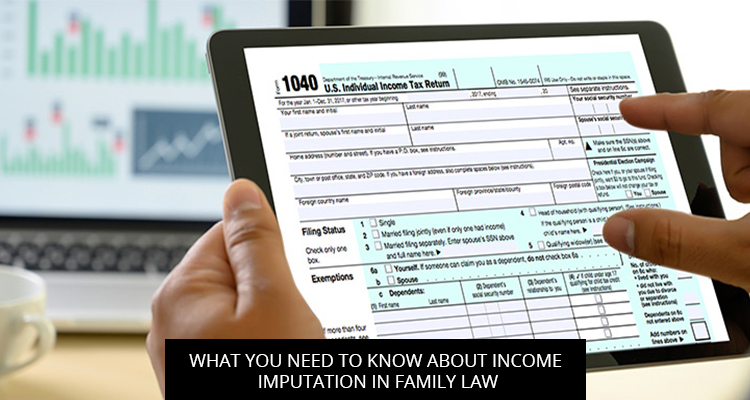
During a family law proceeding a party may bring the court’s attention to the other party’s income reported in the financial statement. This may arise in situations where the support payor either receives cash income, lives a lifestyle inconsistent with the reported income, or the support payor is intentionally underemployed. As the child support and spousal support amount largely depends on the payor’s income, determining the payor’s income can be a highly contentious issue in family law proceedings.
Scenarios That Result In Imputation Of Income By Courts
The situation where a party only works a few days a week, or the party is working at a minimum wage job despite having received higher education would raise serious red flags. If income is ascribed, the court might adjust the amount by increasing it to take into consideration income tax since the Child Support Schedule relies heavily on the gross taxable income. Section 19 of the Ontario Federal Child Support Guidelines stipulates that the court may set down such an amount of income to a parent or spouse deemed appropriate in the circumstances.
The circumstances in which the courts may impute include:
- intentional unemployment or under-employment
- exemption from payment of income tax
- payment of tax at an effective rate lower than that in Canada
- diversion of income that may impact the level of support
- the parent’s incapacity to reasonably use the property to generate income
- the parent’s inability to make proper financial disclosure
- a situation in which a major portion of income is derived from dividends or capital gains
- the unreasonable deduction of expenses from income by the parent, reasonableness not being solely governed by the standard applied in the Income Tax Act.
- the parent is a beneficiary of a trust and is or may receive income or other benefits from the trust.
Intentional Unemployment
The courts are permitted to impute income when a spouse is intentionally unemployed. As it was held in the case of Drygala v. Pauli, (2002), 61 O.R. (3d) 711 (Ont. C.A.), that when courts evaluate intentional unemployment and impute income, there is no requirement to find a particular intent to evade child support obligations. As well as in Lavie v. Lavie, (2018) ONCA 10, the court has specified that if a parent is earning less than what he/she is capable of earning, then they would be considered to be intentionally underemployed.
Financial Disclosure
Both the parties in a family law proceeding have an obligation to make financial disclosure to determine each party’s income. The disclosure comprises of the income tax returns, notices of assessment and reassessment, along with employee’s tax returns.
If the payor parent is self-employed, then the financial disclosure would also include the financial statements of their business or practice, salaries and management fees to non-arm’s length parties, and balance sheets of a corporation controlled by a parent and of any trust of which the parent is a beneficiary. The parent asking the judge to find a different income bears the onus of proof.
Refusal To Voluntary Disclosure
In case the payor spouse refuses to voluntary disclosure, the recipient parent must file a court application for a financial disclosure enforcement order. The recipient parent can also ask the judge presiding the case conference, settlement conference or trial management conference to issue disclosure orders.
We Can Guide You. Contact Us!
Undoubtedly, the law of income imputation is a complex and evolving area, given the magnitude of judicial discretion it allows. If you have any queries pertaining to income imputation and child support, get in touch with our skilled Family Lawyers at Ayaz Mehdi Professional Corporation.
Disclaimer: Kindly note that sending or receiving information through this site does not establish a solicitor-client relationship. Legal matters are fact-specific, and the law is variably changing. The views expressed and the content provided on this blog are general guidelines and cannot substitute for proper legal advice. Schedule your legal consultation by clicking here: Let’s meet!






